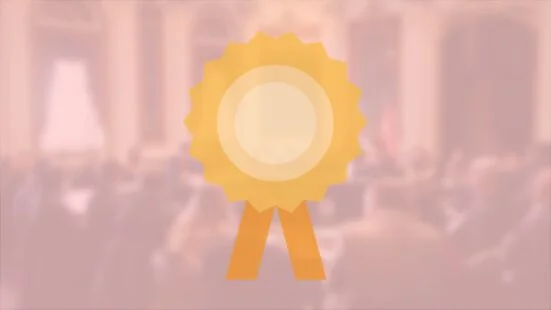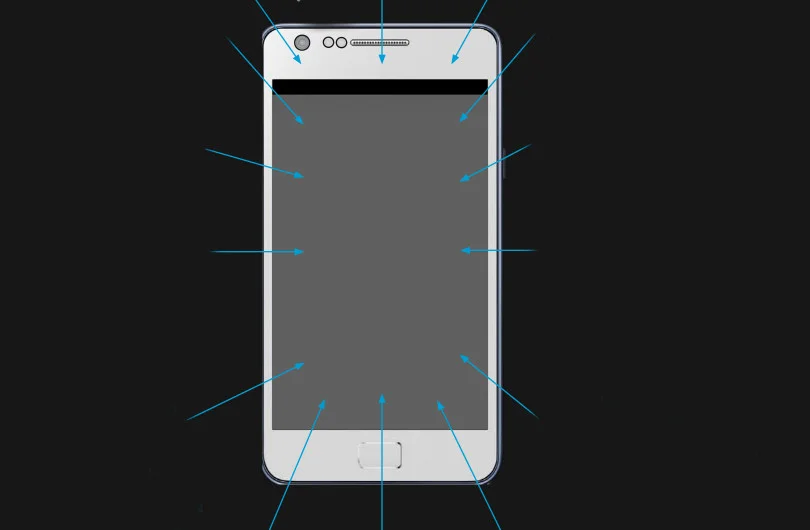Engine’s Statement on Recent Attacks to our Patent System
Startups Strongly Oppose The STRONGER Patents Act
Today, Reps. Steve Stivers (R-OH) and Bill Foster (D-IL) introduced a House version of the STRONGER Patents Act (S.1390), which would hobble the U.S. Patent and Trademark Office’s internal review system for challenges to overly broad, obvious patents and overrule decades of Supreme Court decisions on patent issues, exposing technology users to increased litigation.
Panel Round-Up: Design Patents and Defining the Article of Manufacture
The panel discussion, “Design Patents and Defining the Article of Manufacture – One Year Later,” was moderated by Julie Samuels, President of the Board at Engine Advocacy and Executive Director at Tech:NYC. The expert panel also featured Charles Duan, Senior Fellow and Associate Director of Tech and Innovation Policy at R Street Institute; G. Nagesh Rao, a 2016 USA Eisenhower Fellow and former Patent Examiner and Senior Policy Advisor at the USPTO; and Matthew Levy, former Patent Counsel at the Computer and Communications Industry Association (CCIA).
2017 Year in Review: Patents
While patent trolls remain a problem, in 2017, startups started to see some relief from nefarious patent litigation. The decrease in patent litigation abuse stems largely from meaningful Supreme Court rulings and the continued implementation of the Leahy-Smith America Invents Act (AIA) at the United States Patent and Trademark Office (USPTO).
Congratulations to the new United States Patent and Trademark Office Director
Startups Weigh in on NAFTA Negotiations
Engine Statement on President Trump’s Pick for United States Patent and Trademark Office Director
Engine looks forward to working with President Trump’s for nominee Andrei Iancu for the position of the Director of the United States Patent and Trademark Office (USPTO). As a non-profit advocacy and research organization that supports startups, we understand what an important position the Director of the USPTO is to protecting the innovation ecosystem.
Engine to Testify before House Judiciary Committee on Bad Patents
HBO’s ‘Silicon Valley’ tackled an issue that’s all too familiar to startups: The threat of frivolous patent litigation
Engine Supports Vishal Amin's Nomination to Intellectual Property Enforcement Coordinator
Engine Welcomes Supreme Court Ruling in TC Heartland Case
Today, the Supreme Court delivered a blow to patent trolls by unanimously reversing the Federal Circuit’s decision in TC Heartland v. Kraft Foods Group Brands LLC. The high court ruled that defendants in patent cases can only be sued where they are incorporated or have a regular and established place of business. The decision will make it significantly harder for patent trolls to file lawsuits in jurisdictions that patent-friendly but otherwise unrelated to the claims at issue—most notably the Eastern District of Texas, where almost forty percent of patent cases were filed last year.
New Documentary “The Patent Scam” Explores How Patent Trolls Inflict Harm on Small Businesses and Their Struggle to Fight Back
Today, Engine hosted Austin Meyer, the director of the new documentary “The Patent Scam,” at the Capitol Hill Visitor Center. The screening and subsequent discussion with real victims of patent litigation abuse demonstrated the extent that the U.S. patent system is failing to protect small businesses and startups from patent trolls.
In Apple v. Samsung, SCOTUS Sided With Reason Over Rounded Corners
After almost five years of legal volleying, the U.S. Supreme Court finally issued a decision in the highly anticipated Apple v. Samsung design patent case late last year. On Tuesday, Dec. 5, the court delivered a unanimous decision in favor of Samsung, finding that damages for design patent infringement may be limited to revenues attributable to a component of an article of manufacture rather than profits from the entire article. While this is an important victory for startups and innovators—from global corporations to inventors toiling in garages—courts must still work to provide the guidance and clarity necessary to prevent bad actors from abusing the patent system to the detriment of innovation. And they have a new opportunity to do so: On Feb. 7, the U.S. Court of Appeals for the Federal Circuit took a significant step in that direction by remanding the Apple v. Samsung case to the Northern District of California court.
Engine Statement on Michelle Lee Remaining as Director of USPTO
Under Director Michelle Lee, the Patent Office has made real strides toward fixing patent quality. While much work in that area remains to be done, we are encouraged by the steps she and her team have taken and are pleased that she will remain in her role in the incoming Administration so that this important work can continue. Startups in particular rely on a well-functioning patent system, and under Director Lee's leadership, the Patent Office has welcomed the startup community to play a role in that debate. We look forward to continuing working with her to ensure that that the patent system promotes rather than hinders innovation.
So How Many Patents Are in a Smartphone?
The Supreme Court’s December 2016 decision in Apple vs. Samsung reversed a dangerous lower court decision that would have allowed patent plaintiffs to claim the total value of a product containing an allegedly infringing design feature, even if that design feature only provides a small amount of the product’s value. While total profits awards may arguably have been more plausible in an age when devices were less complicated and the design of the object constituted a significant portion of its value, the complexity of modern devices renders total profits awards for design patent infringement particularly illogical.
One Way to Protect Startups from Patent Trolls? Get Rid of Bad Patents.
The patent system was established by our founding fathers as a tool to promote innovation and invention. But too often, America’s most creative, forward-thinking startups find themselves interacting with the patent system in a less-than-ideal way: on the receiving end of an infringement suit or a letter threatening as much. Bad actors that have amassed hundreds and thousands of overbroad, low-quality patents (colloquially known as “patent trolls”) target businesses, using these patents as proverbial weapons with the goal of forcing companies into costly settlements.
Five Years Later: What the SOPA/PIPA Protest Meant for Tech
Considering tech’s strong presence in DC politics, it’s hard to believe that half a decade ago, the notion that the internet community was capable of any unified political engagement seemed far-fetched. But exactly five years ago today, the nation’s political apparatus quickly came to understand just how powerful a constituency the internet community could be.
2016 Year in Review: Intellectual Property
The Copyright Office’s announcement on New Year’s Eve 2015 that it was launching a public review of the Digital Millennium Copyright Act (DMCA) set the tone for a varied and busy year in intellectual property policy. While there was no “Next Great Copyright Act” or comprehensive patent reform bill in 2016, courts, agencies, and elected officials addressed a wide range of IP issues, setting the stage for even more significant developments in 2017.
Engine Welcomes Supreme Court’s Ruling in Design Patents Case
This morning, the Supreme Court ruled unanimously in Samsung’s favor in a case against Apple involving how damages should be calculated and awarded in design patent cases. In a win for the startup community, the court held that an award for design patent infringement does not necessarily allow the patent holder to obtain damages equivalent to the total profits of a product in which the patented design is used, as the lower court originally ruled. Rather, courts can award design patent damages for the particular components in which the patent was used. The decision may result in the lower court drastically decreasing its original award of almost $400 million to Apple, though the Supreme Court did not rule on how the modified damage amount should be calculated.
Continuing the Startup Community’s Fight for Balanced Copyright
As a non-profit policy organization committed to making the world better for startups, Engine has a long history of engagement on copyright reform issues. Indeed, Engine began as an effort to harness the political power of the startup community that emerged from the tech world’s fight against the ill-fated SOPA/PIPA copyright bills. While the SOPA/PIPA battle remains a critical milestone in the emergence of tech as a political force, our work to return copyright law to a system that promotes rather than hinders innovation is only beginning. To help further this crucial mission, we are proud to join the Re:Create Coalition, a group of creators, innovators, and users working to ensure that copyright laws are balanced and foster innovation, creativity, and economic growth.

























